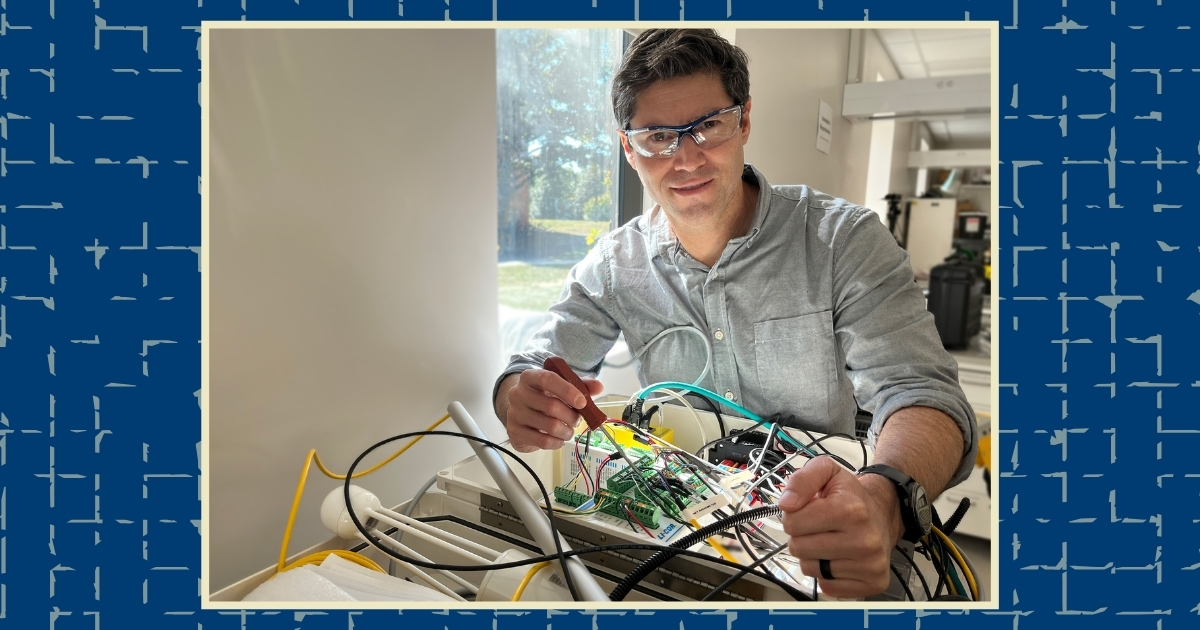
Category: Plant and Soil Sciences

Rodrigo Vargas appointed to Department of Energy advisory committee
October 21, 2024 Story and photo by Katie Peikes
Rodrigo Vargas, University of Delaware professor of ecosystem ecology and environmental change, has recently been appointed to a prominent U.S. Department of Energy advisory committee.
The Biological and Environmental Research Advisory Committee advises the Department of Energy’s Director of the Office of Science on scientific and technical issues stemming from the department’s various biological and environmental research initiatives. Vargas is the first and only UD faculty member to be appointed to this committee.
“What I like about participating in committees like this is you learn from different perspectives of the community,” said Vargas, a professor in the College of Agriculture and Natural Resources’ Department of Plant and Soil Sciences. “But you also have the responsibility of representing the interests of the community and communicating that to federal agency leaders. That brings a lot of joy for me because I can be an advocate for my community.”
The 34-member committee includes engineers, physicists, atmospheric scientists, and various other professionals. Vargas, an ecosystem ecologist by trade, brings his expertise on the interactions between energy and soil, plants, water and the atmosphere to the group. He says the variety of expertise and backgrounds members bring to the committee will help the committee address energy topics from an “Earth system” perspective.
“I am very interested in understanding how natural ecosystems work and how they are going to be modified and influenced by climate change,” Vargas said. “And therefore, what are the consequences for energy production, ecosystem sustainability, and climate change mitigation.”
His priority for his appointment to BERAC is representing the interests of the communities that align with the mission of the Biological and Environmental Research program under the DOE. Vargas pointed to BERAC’s charter, which he said he is most excited to be a part of.
The charter emphasizes the committee will periodically review and recommend sciences, data management and data analysis to the federal department. They’ll advise on the department’s long-range plans and strategies.
“It’s a great responsibility,” Vargas said. “I want to learn about the actions and backgrounds of all past committee members, see how I can contribute, and especially be an advocate for the communities of interest and an advocate for the Office of Science in the Department of Energy.”
Vargas was appointed to BERAC in summer 2024. The appointment term is three years and renewable. He’ll attend his first meeting with the committee on Oct. 24 and Oct. 25.
Vargas is a highly-cited researcher, a fellow of the American Association for the Advancement of Science and a frequent advocate for minorities in science. In 2022, Vargas along with UD biogeochemistry and plant-soil interactions professor Angelia Seyfferth, were awarded a U.S. Department of Energy grant from the Office of Biological and Environmental Research to look into how coastal ecosystems withstand storm events.
